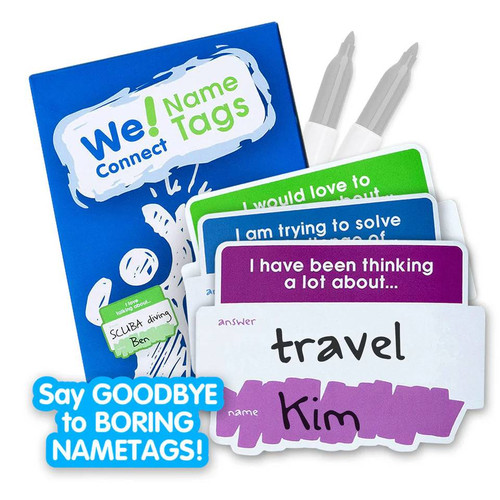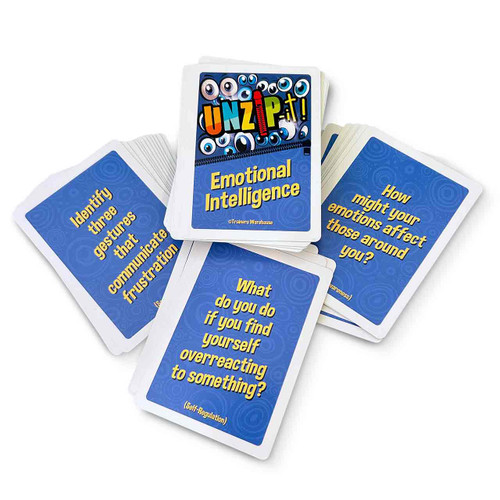Conversation Decks
Conversation Cards provide dozens of ways to get people talking, whether they’re just getting acquainted or digging into deeper topics. Choose a deck loaded with a brilliant array of photos, quotes, questions, or conversation prompts to stoke conversation, encourage metaphorical connections, play games, and build relationships. Each deck will promote creativity and engagement in different ways.
-

We Connect Connection Toolkit
-

We Connect Sticker Nametags
-

Quote Builders
-

Meeting Zest Card Deck
-

Stress Management Card Deck
-

Shaped By Our Past Card Deck
-

Synergy Stack
-

Kind Cards
-

Work-Plays Scenarios
-

Blank Playing Card Deck - Bicycle Brand Style
-

Emotional Intelligence Conversation Deck
-

UNZIP-it! Set Conversation Starters
SO MANY OPTIONS, SO MANY OF USES
Conversation Cards with questions and quotations are available with a wide array of content. To choose a set that is most suitable for your group, consider whether the participants already know each other well, or are just forming new relationships. Don’t choose questions that are too deep if it’s a first meeting. UNZIP-IT! Decks offer a broad variety of topics from getting-to-know-you conversation decks to deeper subjects like diversity, leadership, team dynamics, trust, and happiness at work. Photographic conversation cards add a metaphorical element to discussions, as participants make links between the images on the cards and the thoughts they provoke. When using a set of photographic cards, you can ask participants to select a card that reflects how they feel, indicates something they hope to learn, or reminds them of a formative experience. Perhaps, group participants into triads and see what story they can tell with their collective group of cards.TRAINERS WAREHOUSE CONVERSATION STARTERS AND MORE
Conversation card decks are one way to initiate conversations. Trainers and Teachers also love our one-of-a-kind Silver-Series Thumballs to start dialogues and discussions. Just toss the ball and discuss the prompt under your thumb. Other participation enhancers include Answer Boards, Game Buzzers, and Review Tools, all of which help make learning more innovative, effective, and fun. Moreover, Trainers Warehouse is a family-owned business, committed to excellent customer service and guaranteed satisfaction.
































